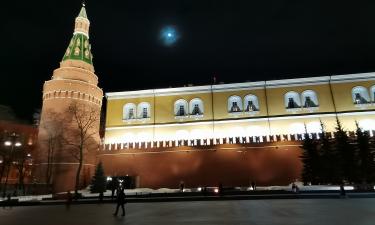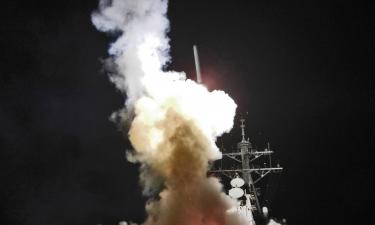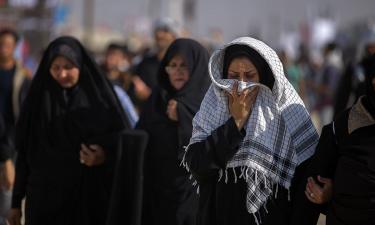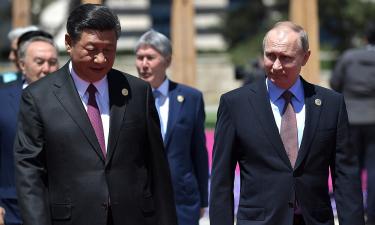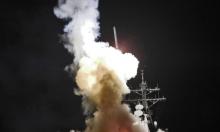USA: Culture of Violence
American historian explains, in another interview granted to Pravda.ru, the imperialist culture in his country, previous to the independence of the thirteen British colonies in America, and how, from the first steps, American children are taught to feel superior to the rest of humanity.
Discrimination and violence, at the deepest roots of the formation of the American State.
Edu Montesanti: The launching of two atomic bombs, the only ones in world history, annexation of more than half of Mexican territory, genocide of native peoples, war crimes in Korea, Vietnam, Iraq, Afghanistan, attacks on democracy in Latin America through sabotage, murders of democratically elected leaders, looting of natural wealth, in short, a total of 47 military invasions considering only the direct interventions of the United States in the region between 1846 and 2000.
The list of terror made in USA is vast, so my question is, given such examples from the political class nothing could be expected from American society, but discrimination and excessive violence, am I wrong, Professor Dr. Kuznick?
Peter Kunick: Americans have always prided themselves on being "exceptional." We first saw this with John Winthrop's sermon on board the Arbella in Massachusetts Bay in 1630, when he told the soon-to-be settlers that they would be like a "city upon a hill" and their example would lead the Christian world to salvation.
Genocide of Native Americans, enslavement and brutalization of millions of people of African ancestry, exploitation of hundreds of millions of workers of all races and ethnicities, discrimination against women and non-whites of all genders notwithstanding, Americans have clung doggedly to this belief.
It expresses itself in the notion that the United States is not only different than other nations, it is better than other nations. Whereas other countries are motivated by greed, or territorial aggrandizement, or geopolitical domination, the U.S., they believe, is benevolent and altruistic and just wants to spread freedom and democracy.
This view has prevailed for centuries, but it gained even more adherents during the Cold War and in the years since. It was jolted by the presidency of George W. Bush and his coterie of empire-cheering neoconservatives. It got so bad that the New York Times headlined its Sunday Magazine section on January 5, 2003 "American Empire: Get Used To It."
Neocon theorists like the late Charles Krauthammer sang the praises of U.S. domination and in late 2002 proclaimed this the "unipolar era" that would last indefinitely. The disasters in Afghanistan and Iraq brought this unipolarity to an unexpectedly quick conclusion. By 2006, even Krauthammer admitted that his hegemonic fantasy was coming to an end.
Barack Obama had a chance to end this foolishness once and for all and even made some comments critical of the notion of American exceptionalism for which he was pilloried. He quickly backed down and began openly embracing this noxious notion and asking god to bless America.
He and Secretary of State Hillary Clinton rarely missed an opportunity to echo former Secretary of State Madeline Albright's [Bush administration] statement that the U.S. is the "indispensable nation." Albright used this to justify U.S. use of force around the world. Obama and Clinton would come to do the same.
How much do you think that US media and the educational system feed the culture of violence and racism, rooted in American society? How does all this relate to this crime of four white policemen against a black citizen, George Floyd, from the lower classes of Minneapolis?
The American people are taught that the U.S. is exceptional from the time they can first walk and talk.
They learn it in their schools. The see it on television and in the movies. It goes unquestioned in American political discourse. It blinds them from seeing the world the way other citizens of planet Earth do.
The fact, for example, that the U.S. is bombing at least seven Muslim-majority countries barely causes a stir. The fact that the U.S. has an empire of approximately 800 overseas military bases whereas the rest of the world combined, friends and foes alike, has fewer than 100 by the most expansive definition is not questioned.
Throughout the Congressional inquiries into Russian interference in the 2016 elections, the fact that one could watch "expert" after "expert" on U.S. mainstream media decry Russian intervention as an "act of war" without ever raising the U.S. record of intervening in the elections and political affairs of one country after another since the start of the Filipino insurrection in 1899 was truly appalling.
One of Donald Trump's few positive achievements as president may be that he has finally put to rest any thought that the U.S. is exceptional in a positive way. Under Trump, U.S. standing in international polls has plummetted. The U.S. has become a global laughingstock.
Foreign observers write that much of the world no longer fears or despises the United States; they now pity it with its hydroxychloroquine swigging fool at the helm, who advocates drinking disinfectants and shining lights up people's butts in order to combat the novel coronavirus.
Americans who pride themselves on being number one in everything take little pride in the fact that their country is number on in Covid-19 cases and Covid-19 deaths.
The U.S. no longer proclaims, with any credibility, the notion that it is the world's moral leader. The rest of the world gazes upon the United States with horror or disbelief.
As John Paul Sartre warned when the U.S. executed the Rosenbergs in 1953 in the midst of its McCarthyite hysteria,
"Do not be astonished if we cry out from one end of Europe to the other: Watch out! America has teh rabies! Cut all ties which bind us to her, otherwise we will in turn be bitten and run mad!"
But the deeper causes of the unrest have been with us for 400 years. Racism and the resulting violence against Black bodies have been with us since the first slaves were brought to America. One can even trace the American slave trade back further to Columbus and the origins of the brutal European conquest of the Americas.
How do you see President Trump's response to Floyd's assassination and the protests that have taken over the streets across the United States, and how much is he responsible for the chaos that is taking over the country?
Donald Trump, as an unrepentant bigot and would-be tough guy, has done everything he can to sow divisions in society along racial lines and to exploit this current crisis to help his reelection chances, but he does not bear principal responsible for the underlying conditions that triggered the current uprising.
He has certainly made everything worse with his utter incompetence in dealing with the pandemic, which has killed people of color at more than twice the rate of whites, shined a light on the glaring inequities throughout American society on race and class lines, and devastated the American economy in ways that disproportionately effect the poor of all races.
So, even before the sickeningly callous police execution of George Floyd in broad daylight in front of a crowd of frantic onlookers, American society was a tinderbox ready to explode. Well over 100,000 people had already died from Covid-19. More than 40 million had lost their jobs in recent weeks. Desperation and frustration were building.
And then the events in Minneapolis lit the flame and Donald Trump, with his inane calls for violence and law and order, poured gasoline on the fire.
Whereas other presidents like John F. Kennedy had called for unity and peaceful protest at a time like this, Trump called upon the police to use the tools of third world dictators to stop the disorder in America's streets.
On top of that, he and his thoroughly vile Attorney General William Barr order the police and armed forces to violently clear peaceful protesters demonstrating in front of the White House so that Trump could have a photo op in front of an historic church near the White House.
It was immediately condemned as one of the most cynical and craven acts ever undertaken by an American president. Once again, Trump was signaling the hardcore racists among his supporters that he would happily use police-state tactics to silence the protesters.
This time it backfired because it was so nakedly thuggish an act. Even many of his sycophantic Republican followers were nauseated by this spectacle.
The murder of Martin Luther King Jr. in 1968 had a social effect similar to what we see these days, since Floyd was murdered. Decades later, in 1992 the world watched amazed, and with some hope, the reaction of Americans who were protesting strongly in Los Angeles for the brutal murder of the black driver Rodney King by white policemen, with outbreaks of demonstrations all over the country. In 2008, Barack Obama was elected, the first black president of the United States, causing a stir, and once again bringing hope to Americans and the world, with regard to combating racism. Nothing has changed.
What is effectively needed to transform the racial hatred in the United States?
The current uprising may not be unprecedented, but it is very promising. One of the things I like most about it is the large number of whites who are participating. That reminds me of the best days of the Civil Rights Movement, which was very much an interracial movement.
Although there have always been important pockets of white support for the black struggle for justice in America, we are now witnessing more white activism than we've seen in decades. This is very heartening. It is especially true among younger participants in these demonstrations.
I see the changes among my students. College students today were born in the shadow of 9/11. They have known nothing but war in their lifetimes. This warfare might not have been waged very close to home, but they have seen the U.S. engaged in one unending and completely futile war after another.
They have seen money that could be going into education instead siphoned off into the war machine. They have accrued enormous amounts of debt in order to pursue higher education. They are aware that four decades of neoliberal economic policies have ravaged not only social services but the environment itself.
This generation has been learning about climate change for years in their schools and in popular culture. They know how fragile our planet is and how this will effect their futures. They also are somewhat aware of the existential threat posed by nuclear warfare and see their government embarking on an almost $2 trillion nuclear modernization program.
Then on top of that they have been learning in their schools about systematic racism, which they have witnessed over and over again with police murders of innocent African American men and women. No wonder they're angry. No wonder they're fed up. No wonder they overwhelmingly support democratic socialism over a capitalist system in which the 3 richest Americans have more wealth than the bottom half of the U.S. population and the richest 8 people globally have more wealth than the poorest 3.8 billion. They find this appropriately sickening.
So these protests not only involve brave young African Americans who live on a daily basis with the realities of racism, discrimination, and police brutality, they involve white and yellow and red and brown people who see their basic human bonds with the George Floyds and other victims of a cruel and inhumane system.
And now the global pandemic is making clearer than ever the connections between people across the globe as part of a planetary community. While racism may be solvable or at least improvable within an individual country, the deep problems caused by global structures of inequity and violence are not.
This is why some of us put forth our COVID-19 Global Solidarity Manifesto, available at covidglobalsolidarity.org, and why we have been working to build a truly international movement to solve the deeper problems confronting all this inhabitants of this beautiful though fragile planet.
Subscribe to Pravda.Ru Telegram channel, Facebook, RSS!
